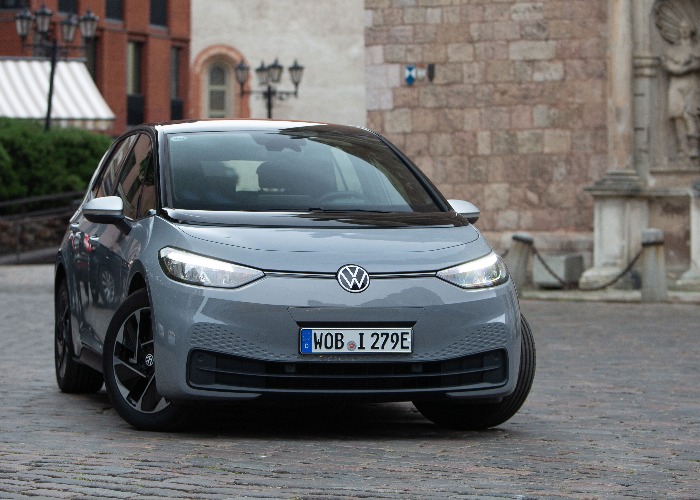Volkswagen Polo, Skoda Fabia, Seat Ibiza: the cheapest cars to insure

Car insurance is a big running cost for motorists to consider, so which are the cheapest cars to cover?
Car insurance has been getting cheaper, in no small part due to the reduced amount of driving we’ve done over the last year and a half due to the pandemic.
A recent study by MoneySuperMarket found that the average cost of a car insurance premium in the second quarter of 2021 came to £417.
While that’s up slightly from the first quarter, it’s down by more than 12% on the same period in 2020, showing that getting behind the wheel is getting a little cheaper.
However, the actual price we pay for our car insurance can vary enormously, based on all sorts of different factors from your age and location to the type of car you’re driving. After all, some cars are cheap to insure and others will really cost you a packet.
That’s where a new WhatCar? Study comes in, which set out to find the very cheapest cars to insure today.
How WhatCar? compared prices
For this comparison, WhatCar? based all of its quotes on a 40-year-old male teacher who is married, living in Caerphilly, and drives 10,000 miles.
This person also has 10 years of no claims bonus and no driving convictions or accidents within the past five years.
Now, let’s take a look at the ten cheapest cars to insurer, according to the WhatCar? study, and whether they are actually any good.
10 ‒ Fiat 500
In this example, the cost of insuring the Fiat 500 comes to just £256 a year.
It’s a popular car with WhatCar?, boasting distinctive looks and an easy drive, though it apparently can be a little “unsettled” over potholes.
9 ‒ Fiat Panda
It’s followed in the list by another Fiat, the Panda, which will set you back £253 per year on insurance costs.
While some people apparently fall for the Panda’s “quirky looks” according to the reviewers, the reality is that it has been outclassed by its rivals like the Hyundai i10 and Kia Picanto.
As WhatCar? points out, it’s slower, not great to drive, and lacking the safety equipment of other small cars.
8 ‒ Citroen C3 Aircross
The Aircross is described by WhatCar? as “temptingly affordable to buy”, and it’s also pretty cheap to insure compared to other small SUVs, setting drivers back £247.
It doesn’t hold its value like some of its rivals, but it’s apparently got a bright and airy interior, with plenty of space and options for personalising the vehicle.
7 ‒ Citroen C1
It’s followed by another Citroen in the form of the C1, which will set back our example driver £246 per year.
The reviewers point out that it’s popular with new drivers and as a second family motor, as it’s both affordable to buy and own. It’s not the most sprightly but it boasts good fuel efficiency and is fine for pottering around town.
6 ‒ Renault Captur
The Captur was one of the original small SUVs, and the second generation was launched in 2019, boasting more room and a plusher set up than the original, with plenty of safety kit to boot.
It’s a cheap vehicle to insure as well, costing just £239.
5 ‒ Peugeot 108
The 108 is very similar to both the Citroen C1 and Toyota Aygo, but it’s more affordable to insure. According to the WhatCar? study it will set back our example driver a paltry £238 per year.
It wins praise from the reviews for a frugal engine, while it’s also well equipped for such an affordable car.
4 ‒ Renault Clio
Our second Renault in the list is the Clio, which would cost £222 for a year’s cover.
It’s another model that’s popular with young and new buyers, as it’s cheap to buy and practical for small families. It’s also clearly cheap to insure.
3 ‒ Volkswagen Polo
The Polo would cost our example driver a very affordable £218 for a year, according to the WhatCar? research.
The reviewers note that while it’s often in the shadow of the Golf, it’s a motor that shouldn't be underestimated as it’s good to drive, comfortable and offers plenty of room inside.
Another plus point is that it retains its value better than its rivals.
2 ‒ Seat Ibiza
The Ibiza is a similar motor to the Polo, and according to WhatCar? it trumpets it “for driving enjoyment and value for money”.
It’s not just an affordable motor to buy either; a year’s cover will set back our example driver just £206.
1 ‒ Skoda Fabia
In first place is the Fabia, with an annual insurance cost of just £189, a massive £17 less than even its nearest rival.
Even though it’s a cheap car to purchase, and evidently to insure, WhatCar? reckons it has a premium feel inside and out. It’s not the best car in the world, obviously, but it certainly offers phenomenal value for money.
I want to pay less for my car insurance
No matter what car you drive, there are ways to reduce the cost of your cover each year. This can include the likes of shopping around, rather than simply accepting the renewal price, to adding extra drivers to the policy.
Comments
Be the first to comment
Do you want to comment on this article? You need to be signed in for this feature